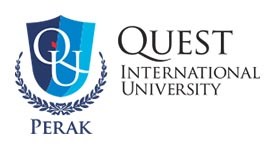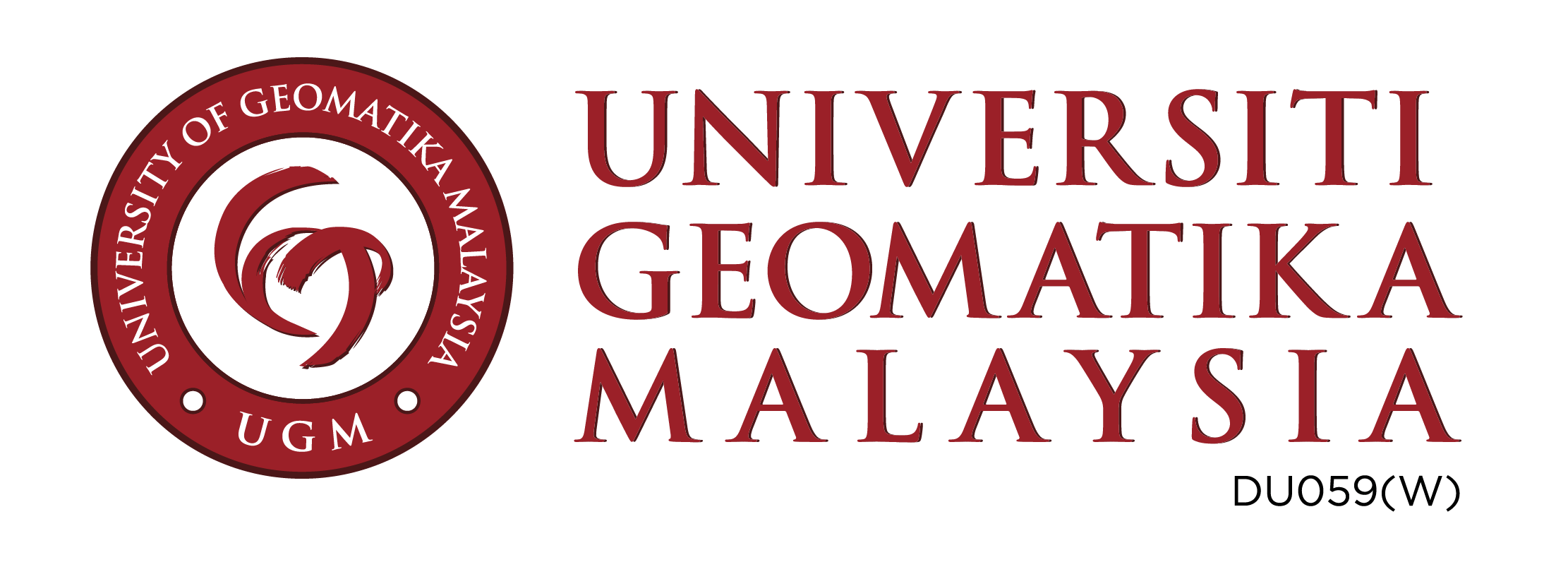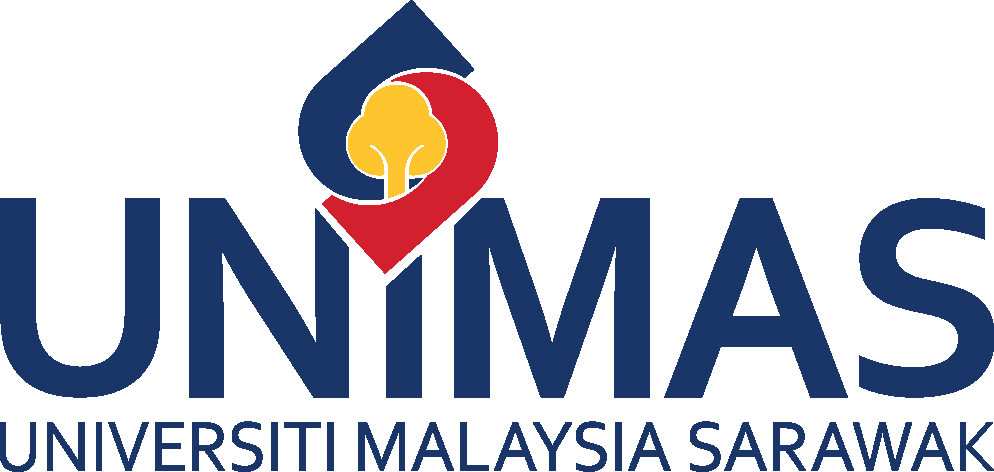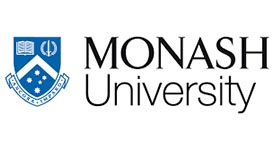Astronomy Course in Malaysia : Complete Guide for International Students

- Home
- Specialization
- Astronomy
Overview
Studying Astronomy in Malaysia offers unique opportunities for students passionate about space sciences. Malaysian universities provide a robust Astronomy course in Malaysia, covering fundamental and advanced concepts like astrophysics, celestial mechanics, and observational techniques. Programs are available at undergraduate and postgraduate levels, with tuition fees generally affordable compared to Western countries. Malaysia’s top-ranked universities, such as Universiti Malaya and Universiti Kebangsaan Malaysia, are recognized for their science programs, providing high-quality education, research facilities, and support for international students.
Study Astronomy in Malaysia to access modern observatories, research collaborations, and potential scholarships. Graduates can pursue careers in research institutions, space agencies, and academia, with competitive starting salaries. Malaysia’s multicultural environment is especially welcoming to international students, with many coming from South Asia, the Middle East, and Africa. The country’s stable economy and affordable living costs make it an ideal destination to advance in astronomy.
Why Study Astronomy in Malaysia?
Studying Astronomy in Malaysia presents numerous advantages for international students interested in exploring the mysteries of the universe. Malaysian universities, including Universiti Malaya and Universiti Kebangsaan Malaysia, are renowned for their robust Astronomy course in Malaysia, which covers key areas such as astrophysics, planetary science, and observational astronomy. These universities are strategically located in vibrant cities like Kuala Lumpur and Selangor, offering students access to cutting-edge research facilities and observatories.
One of the top reasons to study Astronomy in Malaysia is the emphasis on quality education combined with affordability. Tuition fees are more economical compared to Western nations, and students can enjoy a lower cost of living in Malaysia’s multicultural environment. Programs are taught in English, making it accessible for international students. Generally, students need to meet an IELTS or TOEFL requirement to demonstrate English proficiency for the Astronomy course in Malaysia.
Additionally, Malaysia’s tropical climate and geographic position are ideal for certain observational studies, providing students unique research opportunities in a supportive academic setting. With growing interest in space research, graduates of astronomy in Malaysia can look forward to career prospects in academia, research institutions, and space-related industries.
International Students Studying Astronomy Course in Malaysia
Malaysia has become a prominent destination for international students interested in pursuing an Astronomy course in Malaysia. With its strategic location in Southeast Asia, the country offers a multicultural environment and world-class educational institutions that provide comprehensive programs in astronomy and astrophysics. International students can expect to receive high-quality education from universities like Universiti Malaya and Universiti Kebangsaan Malaysia, which are renowned for their research facilities and academic excellence.
Students who choose to study Astronomy in Malaysia benefit from advanced curricula that blend theoretical knowledge with practical experiences, including access to observatories and research projects. The diverse student body fosters a rich cultural exchange, enhancing the overall educational experience.
Moreover, studying astronomy in Malaysia opens up various career opportunities, as graduates are highly sought after in sectors such as research, education, and space science. The supportive academic environment and dedicated faculty ensure that international students receive guidance throughout their academic journey. Additionally, with affordable tuition fees and living costs compared to Western countries, Malaysia remains an attractive choice for students from around the globe looking to expand their horizons in the field of astronomy.
Living Cost to study agriculture course in malaysia
| Expense Category | Cost Range (RM) | Description |
|---|---|---|
| Accommodation | 400 - 1,200 | Depending on location and type (university dorms, shared apartments, or private housing). |
| Food | 300 - 600 | Average monthly cost for meals, including dining out and groceries. |
| Transportation | 100 - 300 | Monthly public transport expenses (buses, trains), depending on travel frequency and distance. |
| WiFi | 100 - 200 | Monthly internet costs, which may vary based on the service provider and speed. |
Comparison of Astronomy Courses in Malaysia vs. US and UK
| Country | Tuition Fees (per year) | Living Costs (per year) | Total Estimated Costs (per year) |
|---|---|---|---|
| Malaysia | $5,000 - $10,000 | $3,000 - $8,000 | $8,000 - $18,000 |
| United States | $25,000 - $50,000 | $15,000 - $25,000 | $40,000 - $75,000 |
| United Kingdom | $20,000 - $40,000 | $12,000 - $20,000 | $32,000 - $60,000 |

TOP Universities in Malaysia
- Universiti Putra Malaysia (UPM)
- Universiti Malaya (UM)
- Universiti Sains Malaysia (USM)
- Universiti Kebangsaan Malaysia (UKM)
- Universiti Teknologi Malaysia (UTM)
- International Islamic University Malaysia (IIUM)
Education Levels of Astronomy Course
Studying Astronomy in Malaysia offers various academic pathways, catering to different educational levels.
Students can begin with a Diploma in Astronomy, which provides foundational knowledge in space sciences. This is followed by an Undergraduate Astronomy course in Malaysia, where students delve into topics like astrophysics and celestial mechanics.
Graduates may then pursue a Postgraduate program in Astronomy in Malaysia, allowing for specialization in areas like observational astronomy or planetary science. For those interested in advanced research, a PhD in Astronomy is also available, focusing on in-depth study and contributing to scientific discoveries. These programs collectively make Malaysia an attractive destination for aspiring astronomers.
Diploma in Astronomy in Malaysia
Exploring a Diploma in Astronomy in Malaysia opens doors to foundational knowledge in space sciences and entry-level career opportunities in this fascinating field. Here’s an overview of what students can expect:
Overview
- A Diploma in Astronomy in Malaysia covers fundamental topics like celestial bodies, the solar system, basic astrophysics, and observational techniques.
- The program typically spans 1-2 years, preparing students for entry-level roles or further studies in Astronomy.
Intakes
- Major intakes for the Astronomy course in Malaysia are usually in January and July, though some institutions may offer additional intakes.
Entry Requirements
- Academic: Completion of high school with a focus on science or mathematics subjects.
- English Proficiency: Most programs require an IELTS or TOEFL score, especially for international students.
Tuition Fee
- Tuition fees for the Diploma in Astronomy in Malaysia range from RM 10,000 to RM 20,000 per year, varying by institution.
Jobs for Diploma Holders in Malaysia
- Assistant Research Technician
- Planetarium Guide or Educator
- Observatory Assistant
- Science Content Developer
- Public Outreach Coordinator
- Telescope Operator
- Technical Support in Astronomy Labs
| Category | Details |
|---|---|
| Intakes | Major intakes are in January and July. Some institutions may offer additional intakes. |
| Entry Requirements | Academic: Completion of high school with a focus on science or mathematics subjects. English Proficiency: IELTS or TOEFL score required for most international students. |
| Tuition Fee | Ranges from RM 10,000 to RM 20,000 per year, depending on the institution. |
| Job Opportunities for Diploma Holders |
|
Bachelor in Astronomy in Malaysia
Pursuing a Bachelor in Astronomy in Malaysia allows students to gain in-depth knowledge of the universe, preparing them for a variety of careers in science, research, and education. Here’s an overview of the program:
Overview
A Bachelor in Astronomy in Malaysia program provides comprehensive study in topics like astrophysics, cosmology, planetary science, and observational methods.
This undergraduate program typically spans 3-4 years, equipping students with theoretical knowledge and practical skills in astronomical research.
Intakes
Common intakes for the Astronomy course in Malaysia are in January and July, with some universities offering additional intake dates.
Entry Requirements
- Academic: Completion of high school with a strong background in mathematics and physics, usually requiring specific grades in science subjects.
- English Proficiency: For international students, an IELTS or TOEFL score may be required.
Tuition Fee
Tuition fees for a Bachelor’s in Astronomy in Malaysia range from RM 20,000 to RM 40,000 per year, depending on the university and program specifics.
Jobs for Bachelor in Astronomy Holders in Malaysia
Graduates with a Bachelor in Astronomy in Malaysia have diverse career opportunities, including:
- Astronomy Research Assistant
- Planetarium Manager or Educator
- Data Analyst in Astronomy
- Astrophysics Technician
- Science Communicator or WriterTeaching Assistant in Universities Observatory OperatorPublic Outreach Coordinator
| Category | Details |
|---|---|
| Intakes | Common intakes are in January and July, with some universities offering additional intake dates. |
| Entry Requirements | Academic: Completion of high school with a strong background in mathematics and physics, usually requiring specific grades in science subjects. English Proficiency: IELTS or TOEFL score may be required for international students. |
| Tuition Fee | Ranges from RM 20,000 to RM 40,000 per year, depending on the university and program specifics. |
| Job Opportunities for Bachelor’s Degree Holders | - Astronomy Research Assistant - Planetarium Manager or Educator - Data Analyst in Astronomy - Astrophysics Technician - Science Communicator or Writer - Teaching Assistant in Universities - Observatory Operator - Public Outreach Coordinator |
Master's in Astronomy in Malaysia
A Master’s in Astronomy in Malaysia is designed for students aiming to deepen their knowledge in astronomy and astrophysics, preparing them for advanced careers in research, academia, and space sciences. Here’s a concise overview of what the program entails:
Overview
- The Master's in Astronomy in Malaysia program covers specialized topics, such as stellar dynamics, galactic structure, cosmology, and advanced observational techniques.
- Typically lasting 1.5 to 2 years, this program combines coursework and research, culminating in a thesis on a selected area of astronomy.
Intakes
Major intakes for the Astronomy course in Malaysia are usually in January and September, though some institutions offer additional intakes.
Entry Requirements
- Academic: Bachelor’s degree in Astronomy, Physics, or a related field with a minimum CGPA as required by the institution.
- English Proficiency: IELTS or TOEFL scores may be required for international students to demonstrate proficiency in English.
Tuition Fee
Tuition fees for a Master’s in Astronomy in Malaysia range between RM 25,000 to RM 50,000 per year, depending on the university.
Jobs for Master's in Astronomy Holders in Malaysia
Graduates with a Master’s in Astronomy in Malaysia can pursue various advanced roles in the field, including:
- Astronomy Researcher
- University Lecturer or Teaching Assistant
- Observatory Director or Technician.
- Data Scientist or Analyst in Astronomy
- Science Journalist or Communicator
- Space Science ConsultantPlanetarium Scientist or Program Director
| Category | Details |
|---|---|
| Overview | The program covers specialized topics such as stellar dynamics, galactic structure, cosmology, and advanced observational techniques. Typically lasts 1.5 to 2 years and includes both coursework and research, culminating in a thesis. |
| Intakes | Major intakes are in January and September, with some institutions offering additional intakes. |
| Entry Requirements | Academic: Bachelor’s degree in Astronomy, Physics, or a related field with a minimum CGPA as required by the institution. English Proficiency: IELTS or TOEFL scores may be required for international students. |
| Tuition Fee | Ranges from RM 25,000 to RM 50,000 per year, depending on the university. |
| Job Opportunities for Master’s Degree Holders |
|
PhD in Astronomy in Malaysia
A PhD in Astronomy in Malaysia is an advanced research degree ideal for students aspiring to become experts in astronomical sciences. This program emphasizes in-depth research, preparing graduates for prominent careers in academia, research institutions, and space-related fields. Here’s an overview of the program details:
Overview
- The PhD in Astronomy in Malaysia is a research-focused program where students conduct original research in specialized areas like astrophysics, cosmology, or observational astronomy.
- This program typically takes 3-5 years to complete, involving extensive research work, publications, and a final dissertation.
Intakes
Intakes for the Astronomy course in Malaysia are generally open year-round, allowing flexibility in admission based on research proposals and supervisor availability.
Entry Requirements
- Academic: A Master’s degree in Astronomy, Physics, or a related field with a strong research background.
- English Proficiency: International students may be required to provide IELTS or TOEFL scores to meet English language requirements.
Tuition Fee
Tuition fees for a PhD in Astronomy in Malaysia range from RM 30,000 to RM 60,000 for the full program, depending on the institution and research funding.
Jobs for PhD in Astronomy Holders in Malaysia
With a PhD in Astronomy in Malaysia, graduates have access to advanced career roles, including:
- University Professor or Lecturer
- Principal Investigator or Research Scientist
- Senior Observatory Scientist
- Astrophysics Consultant
- Space Data Scientist
- Scientific Writer or Editor.
- Outreach Program Director
| Category | Details |
|---|---|
| Intakes | Intakes are generally open year-round, providing flexibility based on research proposals and availability of supervisors. |
| Entry Requirements | Academic: Master’s degree in Astronomy, Physics, or a related field with a strong research background. English Proficiency: IELTS or TOEFL scores may be required for international students. |
| Tuition Fee | The tuition fee for the full PhD program ranges from RM 30,000 to RM 60,000, depending on the institution and available research funding. |
| Job Opportunities for PhD Holders | - University Professor or Lecturer - Principal Investigator or Research Scientist - Senior Observatory Scientist - Astrophysics Consultant - Space Data Scientist - Scientific Writer or Editor - Outreach Program Director |
Career Prospects of Astronomy in Malaysia
The growth of Astronomy courses in Malaysia reflects a burgeoning interest in space science and technology, driven by advancements in research and a commitment to exploring the cosmos. As students choose to study Astronomy in Malaysia, they find numerous career prospects in academic institutions, government agencies, and private sector organizations involved in space exploration and research.
The demand for Astronomy professionals in Malaysia is on the rise, particularly in fields related to astrophysics, space technology, and environmental monitoring. Graduates with degrees in Astronomy can pursue careers as researchers, educators, or consultants, contributing significantly to both local and international projects.
In terms of compensation, the salary of Astronomy professionals in Malaysia varies depending on the role and experience, with entry-level positions typically offering competitive salaries that can increase significantly with expertise. Top firms in the Astronomy sector in Malaysia, such as the Malaysian Space Agency and various universities with robust astronomy departments, are actively seeking skilled individuals.
Application Process for Astronomy Course in Malaysia
Applying to an Astronomy course in Malaysia involves a series of steps to ensure a smooth admission process for both local and international students. Here’s a general guide:
- Research Programs and Universities
- Explore universities in Malaysia offering Astronomy courses, such as Universiti Malaya and Universiti Kebangsaan Malaysia, to find a program that matches your academic interests and career goals.
- Check Eligibility Requirements
- Review the entry requirements for the Astronomy course in Malaysia, which typically include academic qualifications in science or mathematics and, for international students, English proficiency (IELTS or TOEFL).
- Prepare Required Documents
- Collect essential documents, including transcripts, certificates, passport copy, English proficiency test scores, letters of recommendation, and a statement of purpose explaining why you want to study Astronomy in Malaysia.
- Submit Online Application
- Apply through the university’s online portal. Fill out the application form, upload the required documents, and ensure all information is accurate.
- Pay Application Fee
- Some universities require an application fee, so be prepared to make an online payment as part of the process.
- Attend an Interview (If Required)
- Certain programs may include an interview to assess your understanding of astronomy and your motivation to pursue the course.
- Await Admission Decision
- After submission, monitor your application status via the university’s portal. Admission decisions typically take a few weeks.
- Apply for a Student Visa
- Upon acceptance, international students should apply for a student visa to study in Malaysia. The university's international office can assist with this process.
Visa Process for Astronomy Course in Malaysia
To study Astronomy in Malaysia, international students must complete the student visa process to ensure a smooth transition into their academic journey. Here’s a step-by-step guide:
- Obtain an Offer Letter
- Secure an offer letter from a Malaysian university that offers an Astronomy course. This official document is necessary to initiate the visa application.
- Apply for Visa Approval Letter (VAL)
- Submit an application for the Visa Approval Letter (VAL) through the Education Malaysia Global Services (EMGS) portal. The university typically assists with this step, requiring documents like the offer letter, passport, and academic transcripts.
- Prepare Required Documents
- Ensure you have all necessary documents, including your passport (valid for at least 12 months), passport-sized photos, proof of academic qualifications, English proficiency scores, and a health declaration.
- Pay Visa Processing Fees
- Visa fees must be paid via the EMGS portal, and fees may vary depending on nationality and the specific Astronomy course in Malaysia you are enrolling in.
- Undergo Medical Screening
- A pre-arrival medical screening is required in your home country. Upon arrival in Malaysia, another health screening will be done at an approved medical center to validate your student visa.
- Receive Visa Approval Letter (VAL)
- After processing, EMGS will issue the Visa Approval Letter. You’ll need this document to enter Malaysia and complete the visa process upon arrival.
- Enter Malaysia and Complete Immigration Procedures
- Present the VAL at the Malaysian entry point. Your passport will be stamped, and you’ll receive a temporary pass allowing you to finalize your student visa.
- Submit Passport for Student Pass Endorsement
- Once in Malaysia, submit your passport to your university’s international office to get your Student Pass endorsed, allowing you to study Astronomy in Malaysia legally.
Application Timeline for Astronomy in Malaysia
When planning to study Astronomy in Malaysia, it’s crucial to follow a structured application timeline to ensure a smooth admission process. Here’s a suggested timeline for prospective students interested in an Astronomy course in Malaysia:
| Timeline | Action Steps |
|---|---|
| 12 Months Before Start Date | - Research universities offering an Astronomy course in Malaysia. - Prepare a list of potential programs and institutions. |
| 10-11 Months Before | - Check entry requirements and deadlines for the selected programs. - Start gathering necessary documents (transcripts, letters of recommendation). |
| 8-9 Months Before | - Take English proficiency tests (e.g., IELTS, TOEFL) if required. - Prepare your statement of purpose and personal statement. |
| 6-7 Months Before | - Complete and submit applications through the university’s online portal. - Pay any application fees as required. |
| 4-5 Months Before | - Attend interviews if required by the university. - Await admission decisions and monitor your application status. |
| 3 Months Before | - Upon acceptance, begin preparing your student visa application. - Apply for a Visa Approval Letter (VAL) through EMGS. |
| 2 Months Before | - Complete any pre-arrival medical screenings and prepare necessary documents for the visa application. |
| 1 Month Before | - Receive the VAL and confirm accommodation arrangements. - Finalize travel plans and prepare for arrival in Malaysia. |
| Start of Semester | - Arrive in Malaysia and complete immigration procedures. - Register at the university and attend orientation sessions. |
Scholarships for International Students Studying Astronomy in Malaysia
Malaysia offers a variety of scholarships for international students aiming to study Astronomy in Malaysia. These scholarships help reduce financial burdens and encourage talented students to pursue their education in the country. Here are some notable scholarships available for those interested in an Astronomy course in Malaysia:
- Malaysian Government Scholarships
- Description: Offered by the Malaysian government to attract international students. These scholarships cover tuition fees, living allowances, and health insurance.
- Eligibility: Open to students from specific countries pursuing undergraduate or postgraduate programs, including Astronomy.
- University-Specific Scholarships
- Examples: Many Malaysian universities, such as Universiti Malaya and Universiti Kebangsaan Malaysia, offer their own scholarships for international students.
- Coverage: These can include full or partial tuition fee waivers, monthly stipends, and accommodation allowances.
- Eligibility: Criteria may vary, often based on academic merit, leadership skills, and community involvement.
- ASEAN Scholarships
- Description: Targeted at students from ASEAN member countries, these scholarships support students pursuing various courses, including Astronomy.
- Coverage: Typically covers tuition fees and living expenses.
- Eligibility: Open to ASEAN nationals who meet the entry requirements of Malaysian universities.
- Private and NGO Scholarships
- Examples: Some non-governmental organizations and private entities also provide scholarships to international students.
- Coverage: These can vary widely but often include tuition fees and stipends for living expenses.
- Eligibility: Criteria differ based on the organization, so students should check specific requirements.
- Research Grants
- Description: For postgraduate students, particularly those enrolling in a PhD in Astronomy in Malaysia, research grants may be available to support their projects.
- Eligibility: Usually awarded based on the quality and impact of the proposed research.
Application Tips:
Students should thoroughly research available scholarships on university websites and apply early to meet deadlines.
Prepare all necessary documents, including academic transcripts, letters of recommendation, and personal statements tailored to scholarship criteria.










